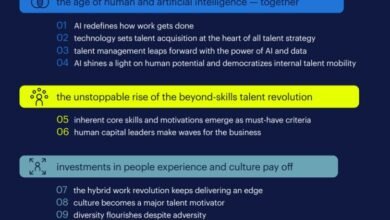
By | Ariaa Reeds
Meta Description:Building future-ready skills is a top concern of human resource leaders.Know the three concerns that will dominate priorities of HR leaders in 2020s
Business growth and finance management have always been critical drivers of an organization’ssuccess. The value of managing human capital, though, is not as often discussed.
As organizations move into the new age, management is becoming complex. Talent war, mobile workforce, yay big expectations of young employees, technological disruptions, and highly aware consumers, are only a few of the headwinds on their way.
Talent management lies at the core.
Asurvey recently conducted by Gartner shows managing talent for effective business outcomes is the biggest challenge faced by HR Leaders. The survey revealed three concerns that will dominatethe list of human resource professionals’prioritiesin 2020. They are:
- Talent Development
- Leadership Development
- Organizational Design and Change Management
Probing 3 Concerns of HR Leaders
Akick upstairs – Talent Development, an ACUTE need.
Building critical skills and competencies pertinent for business growth is the top concern for human resource leaders. It entails ensuring thatemployees gain the knowledge and skills necessary for changing nature of work.
Directly related to organizations’ preference for upskilled workforce is young employees’ penchant for career development.
A focus on talent development can address the needs of both sides.
Organizations with an effective grip on their talent requirements have a proven record in outpacing their competitors. The bigger the company, more important an effective talent management strategy becomes. Leadership in HR can begin by first identifying the skills their organization need. A market-driven and predictive approach can be adopted to that avail.
Cognizant Leadership – Can they lead you into the future?
Another concern for human resources professionals is equipping their leaders to steer the organization with a futuristic view.The survey shows, many mid and senior level professionals are not confident about leading par the demands of the new age.
Leadership roles need to change and upgrade. Developing current and future leadership pipeline falls directly in the priority list ofa Chief Human Resource Officer.
To improve leadership effectiveness, HR can bring learning officers, introduce ‘complementary leadership’ wherein leaders with balancing characteristics–a person weak in certain aspects matched with one strong in those – partner to leverage strengths of each.
Workflow Management – What works and what does not?
Final of the three concerns of HR leaders is the lack of capacity around organizational redesign and change management.
Change is necessary, but it has to take place in a manner that doesn’t topsy-turvy the better aspects of the organization.
The enterprise goals, today, are not aligned with the operations on the floor. They inadequately measure the quality of work, and the process of planning and goal-setting.
To make workflow more flexible and adaptive, human resource leadersmust be equipped to prepare managers, and involve employees in the change strategy. This will percolate the changes down to the last mile.
Taking stock
As organizations increasingly automate and digitize, the skills and competencies required for success constantly change.In this everchanging landscape, one priority that remains constant for human resource professionals is ensuring their employees and leaders are kept abreast with the changes. Organization will advance as its human capital progresses.
Given the recent reducing of headcounts by many companies, millennials and Gen Z’s sky-high expectations, difficulty in finding talent to plug in new vacancies, companies struggling to retain their best employees, all of this makes talent management a monumental challenge for HR.
Brokering learning experiences can help HR connect workforce with opportunities within the organization and create positive employee experience, just as the business benefit from their newly acquired knowledge and reduced employee turnover rate. For better-quality leadership in senior and mid management, CHROs may have to take the lead.
HR is the closest link organizations have to talent management. An effective talent management strategy and practices can highly complement and accelerate a company’s financial growth and performance.






